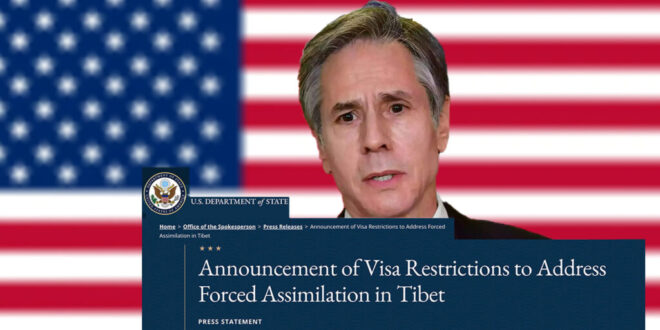Secretary of State Antony Blinken announced that U.S. State Department is taking steps to impose visa restrictions on officials of the People’s Republic of China (PRC) “for their involvement in the forcible assimilation of more than one million Tibetan children in government-run boarding schools” in a press statement issued on 22 August 2023.
Secretary of State raised the U.S. State Department’s concern over the consequences of the PRC’s assimilation policies. The press statement read, “These coercive policies seek to eliminate Tibet’s distinct linguistic, cultural, and religious traditions among younger generations of Tibetans.”
The statement urged “PRC authorities to end the coercion of Tibetan children into government-run boarding schools and to cease repressive assimilation policies, both in Tibet and throughout other parts of the PRC.”
The U.S. officials, including Matthew Miller, the Spokesperson for the U.S. Department of State, and Under Secretary Uzra Zeya, the U.S. Special Coordinator for Tibetan Issues, also echoed similar concern and condemned the PRC’s forcible assimilation of Tibetan children in government-run boarding schools.
The names of the Chinese officials are not yet disclosed publicly by the U.S. Department of State.
Similar concerns over the alarming issue that disconnects Tibetan children from their cultural and linguistic heritage were also raised by the United Nations earlier this year alongside many other prominent Human Rights advocates.
More than one million Tibetan children were forcibly sent to the state-run boarding schools in Tibet to fulfill Beijing’s policy of eradicating Tibet’s unique identity.




